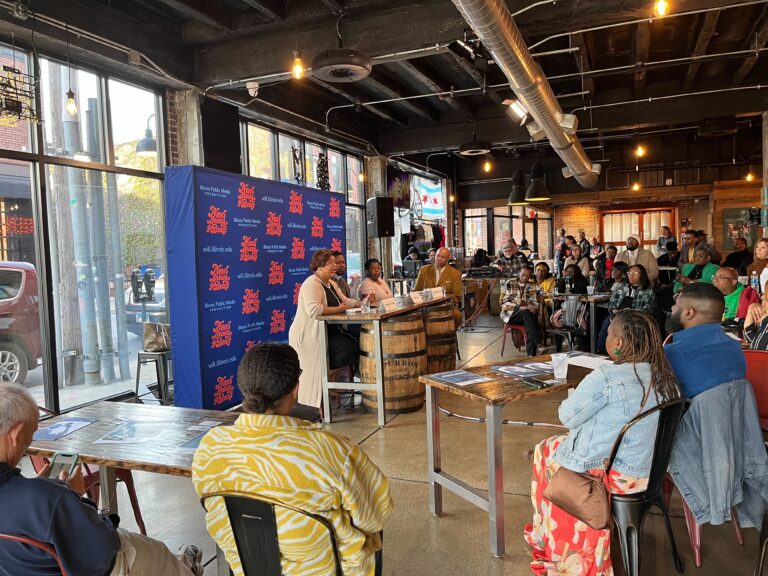CHAMPAIGN — Parents must be open and honest about the adultification and objectification of Black children. That was one of the points discussed by panelists of Monday night’s News, Brews and Beatz event, sponsored by Illinois Public Media.
According to a 2017 study at Georgetown Law Center on Poverty and Inequity, in comparison to their white girl peers, Black girls were seen as more independent and more knowledgeable about adult topics, including sex. The study shows that this adultification starts in preschool.
“Black people’s bodies, we’ve always been under assault, and this is just another form of assault, and our children are experiencing it,” said Dr. Dyneesha Grissom, the founder of YMG Psychological Services & panelist at Monday night’s event.
The reason behind this adultification and objectification goes back to slavery, said Grissom.
“We were not human, we were objects, and we were objects who were made to produce other objects for other people and people still think of us in that way,” said Grissom.
Panelists and audience members alike said that this kind of generational trauma is something they had to overcome and look past when raising their children.
“When I was raising my kids, I was parenting out of fear,” said attendee Ulanda Hunter, a mother, and grandmother. “I didn’t want them to experience the things that I experienced.”
Panelists say that is part of the problem, but more so, is not opening up a dialogue on the history that influenced those parenting decisions.
The major challenge that parents have is not being brutally honest with their Black children about their experiences and the world around them, said Grissom.
“The reality is that this world is not for us,” said Grissom. “We still are under oppression, we are still discriminated against, we still experience racism.”
Panelists also included perspectives of a married couple, two single fathers, and a grandmother raising three granddaughters after the death of her daughter. Another panelist shared the journey of parenting a son who is part of the LGBTQ+ community.
The entire discussion will be posted to Illinois Public Media’s YouTube Channel on May 4.

